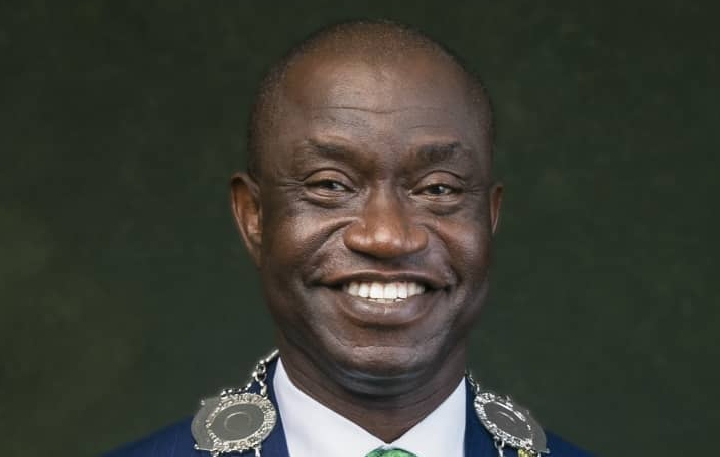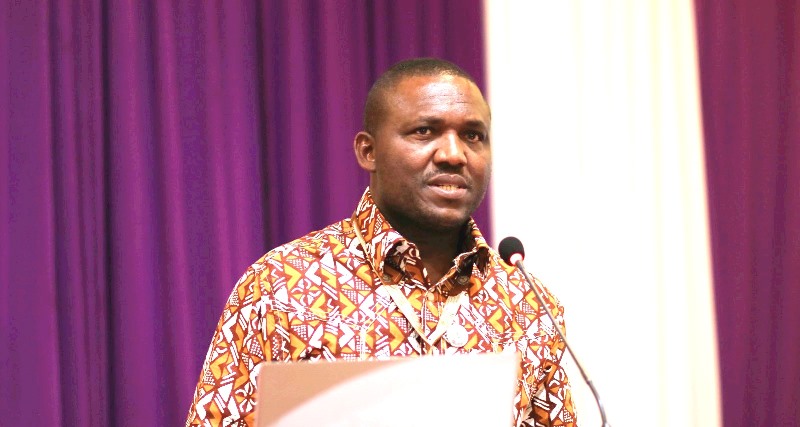
The global workforce is aging due to lower youth entry into the labour market and changing retirement trends. Report has it that globally, 150 million jobs will shift to workers over the age of 55 in the next decade, necessitating better integration programmes. Experts are of the view that organisations should acknowledge these changes by retaining, recruiting and reskilling older workers in recognition of their unique strengths, GLORIA NWAFOR writes.
The global population is aging with life expectancy increasing to 70 years or more in many countries. In 2020, for the first time in history, individuals aged 60 or older outnumbered children under the age of five.
These remarkable gains, experts say are due to improved public health, better nutrition, better healthcare and most recently, employing technological innovations, big data and artificial intelligence (AI) to improve healthy life expectancy and meet the demands of an aging population.
According to data, a long-term trend toward earlier retirement is slowly going into reverse. The United Kingdom, for example, increased its retirement age from 60 (for women) and 65 (for men), first by equalising genders, then pushing both up retirement to 66 with a plan to move up further over time.
In Japan, before a recent increase in the retirement age from 60 to 61 and higher in future years, the government struggled to push the official retirement age up, leaving firms to often solve the problem by releasing workers at 60 and re-hiring them on new contracts, often at reduced pay rates.
In the G7 countries, workers aged 55 and older are projected to exceed 25 per cent of the workforce by 2031, nearly 10 percentage points higher than in 2011.Japan is the extreme case: by 2031, Japanese workers 55 and older will approach 40 per cent of the workforce.
According to Gallup, 41 per cent of American workers expect to work beyond age 65, even as it was 12 per cent 30 years ago. In Nigeria, the retirement age is 60 years or 35 years of public service, with an exception for teachers, judges, and military, including the legislature of 65 years or 40 years of service.
Currently, there is a call for an upward review of the retirement age in public service, where core civil servants have said it has become imperative to demand an upward review of the retirement age and years of service in the entire public service from 60 years to 65 years and 35 years to 40 years.
President of the Association of Senior Civil Servants of Nigeria (ASCSN), Dr Tommy Okon, said allowing the gap to exist is going to grossly affect the service, especially, the core civil service that operates government’s policies and implementation. He said discussions are ongoing at the Joint Public Service Negotiation Council (JPSNC), believing that the process would be considered.
According to him, an employer will embrace it because of the experience over the years and for a stronger, more efficient and more productive civil service.
Despite the shift, it is rare to see organisations implement programmes to integrate older workers into their talent system. Notwithstanding the call for an increase in the number of years of service towards a more productive workforce, on
what this entails for the future of work and adaptability to technology, just as the saying goes people can be old but still be productive.
During a session on ‘Skills for Growth: Creating a Future-Ready Workforce’, at the World Economic Forum (WEF), in Davos, Switzerland, late last year, the need for workplaces to focus on attracting and retaining older workers was raised.
Labour experts, who indicated that the aging workforce would likely have to work longer to support themselves, stressed that workplaces must focus on attracting and retaining older workers.
The discussion was based on a report by the World Health Organisation (WHO), which indicated that the proportion of the global population aged over 60 is expected to nearly double between 2015 and 2050.
The labour experts made up of Nicolas Schmit, the Commissioner for Jobs and Social Rights at the European Commission, Soon-joo Gog, the Chief Skills Officer at SkillsFuture Singapore and Deanna Jones, EVP People, Communications and Transformation at Baker Hughes, highlighted that the world was undergoing several simultaneous changes, including a tight labour market, job turnover due to technological advancements, and a declining population.
Noting that people in many countries are now living and working longer, the experts pointed out that, although traditionally overlooked in many sectors, these older workers could become crucial in filling key roles as populations decline.
They argued that addressing the needs of the evolving workforce would require a variety of strategies to benefit society, workers, and businesses alike. They recommended that there was a need to invest in learning and development.
According to Nicolas Schmit, adapting to the reality of people living and working longer will require a shift in mindset towards continuously developing skills throughout various stages of life, ensuring individuals can remain productive for extended periods.
“We’re investing in people during the whole working life. This practice to say, well this person is 50, why should we still invest in this person, this person will retire…is a wrong approach,” he said.
The panelists all suggested that companies must anticipate a future where labour markets are tight and workforces are aging, necessitating careful consideration of how to retain their experienced employees.
To create healthier workplaces, Schmit emphasized the increasing importance of workers’ health and well-being as companies extend the retirement age. He noted that as economies move into a period where jobs become scarcer, working conditions would become increasingly significant. He pointed out that creating a smooth transition into retirement could create options that work for a variety of workers at different life stages.
The President of the Chartered Institute of Personnel Management of Nigeria (CIPM), Olusegun Mojeed, said as the world of work gradually navigates through the shifting tides of rapid and exponential change, as well as an aging world, which is leading to the trajectory of having a greying workforce, despite the influx of the new generation, and the anticipation of welcoming the generation alpha to the world of work, the need for organisations to recognise, respect and harness the value each generation brings to the table to ensure organisational growth and sustainability was crucial.
Noting that a lot of discourse has focused greatly on the new generation, however, he said older workers bring a level of experience, critical thinking and sheer knowledge that could not be taught.
He said they retain business knowledge and networks, which the younger generation could rely on, and can expand the organisational frontiers based on this leverage.
On how organisations can practically accommodate an aging workforce and attract and retain the talent they need, he mentioned flexibility, an inclusive work culture, investing in continuous learning and development and proposed phased retirement, all of which is to create a thriving intergenerational workplace. He said flexibility was not only about working hours per day but about the fluidity of talent.
According to him, having the right balance and mix of talent from a generational standpoint gives room for reverse mentoring, knowledge transfer and retention of critical knowledge. He said embracing part-time options for older workers allows them to share their decades of expertise and mentor, guide and inspire the next generation.
Mojeed said with technology and AI taking centre stage globally, it is imperative that continuous upskilling and reskilling become a key pull factor and value proposition for attracting and retaining the older generation in the workplace.
The CIPM chief stressed that age was not a limiting factor, even as continuous learning keeps the workforce evergreen, ensuring that the sheer knowledge from the past aligns with the innovation of the future.
“From a practicality standpoint, it is also important to establish the need to ensure that indeed as a nation, we have the adequate infrastructure and superstructure to cater for the older generations in the workplace, and deeply introspect on if the cost of retaining our older generations in the workplace outweighs the benefits.
“Are the support systems really in place? Do we have the right advocacy channels? How swift are our emergency response systems? The clarion call would be for organisations, Human Resource (HR) practitioners and national leaders to review policies and put the right structures in place to enable organisations to attract and retain this valuable generation, and ensure the right measures are in a place where the wisdom of the past and the vigour of the future can co-exist, creating a balanced, thriving, and intergenerational workplace,” he said.
Immediate past President of the Human Capital Providers Association of Nigeria (HuCaPAN), Aderemi Adegboyega, said the turnover of people in the workplace is changing, stating that employers must adapt to the new method to make sure they appropriately staff their businesses.
In today’s work technique, he said, people are changing their retirement age by moving it forward, stating that older people are still stronger and ready to work even up to 70 years of age. In adapting to technology, Adegboyega maintained that there was space for everybody.
“Technology is becoming very adaptive and user-friendly to the extent that you don’t need to be an IT guru before you can use software. With such simplicity it would not be difficult,” he said.
The HuCaPAN chief said there have been a lot of people who were disengaged as a result of their normal retirement age but were given contract employment which is also renewable. The reason, according to him, is that experienced people are also required.
“It is a double-edged thing. You want to train younger people to be able to take on from where those who retired are but it appears that not many younger people are interested in paid employment or permanent employment, where you are tied to one employer.
“As a result, it is becoming a bit difficult to retain younger people who are well-experienced and competent to do the job. Several younger people are impatient to stay unlike what we had before when people stay in one job for many years. As a result, tendencies are to continue to sign on people even when they are retired,” he said.
Citing instances in a secondary employment market like outsourcing, he said one could find out that a lot of organisations still sign on some of these people either to give a hand-holding experience and knowledge to young people that are coming in or to fill the gap when they are yet to attract the right person for the job.
He said Nigeria has started experiencing it but maybe the country has not reviewed the retirement age of workers, especially, in public service “In the private sector the number has reviewed from 55 to 60 but in the public sector when you have served 35 years or when you are 60 years old.”

Similarly, the Director-General of the Nigeria Employers’ Consultative Association (NECA), Adewale-Smatt Oyerinde, said: “You don’t throw away experience. Older people have proved to have better work ethics and you cannot buy experience on the shelf. It is for organisations to find a workable balance between the older workforce and new generation workers.
“While everybody is working within the context of retirement age, it is a matter of allowing the older workers that want to stay to retirement stay while they continue to upskill themselves, learn new skills as they age, and they continue to find relevance in the system. It is all about reskilling as they grow in the job.
“With technological advancement, nobody is too old to learn, once they have the interest and brain capacity to assimilate. The issue of early retirement is circumstantial for different reasons. If the economy is okay and growing, and the business community can accommodate new entrances to the labour market, you realise that you don’t have to let anybody go, you will need people to work even in their retirement age, but when the economy is gloomy, businesses are closing down and you have a large pool of jobless graduates that is when you start looking at options of early retirement so that the younger one can find a way around the system. These are economic reasons that fuel early retirement. Experience is key we can’t throw them away.”
Additionally, giving some three steps to empower older workers, HR experts said there was a need to retain and recruit older workers by understanding what motivates them at work; reskill them for the next 10 years of capability needs and also respect their strengths and allow them to do what they do best.
“Older workers attach surprisingly little importance to learning and growth. Just three per cent of those aged 55 and over rate learning as their top motivator, compared with eight per cent for 18 to 24-year-olds. Some believe they are already fit for the work, with 29 per cent of the 55 to 64 group saying they don’t need new skills. However, 22 per cent of people in this age group say they need more tech skills.
“Both workers and employers need to shift their thinking around retraining. An older worker’s absence of a growth mindset might make them a weak candidate for employment extension. But companies need to design programmes that appeal to them.
“Older workers are motivated to participate when training helps to accelerate their pursuit of interesting work. Encouraging supervisors can also be an important motivator of participation of older workers (and workers of all ages),” they said.













